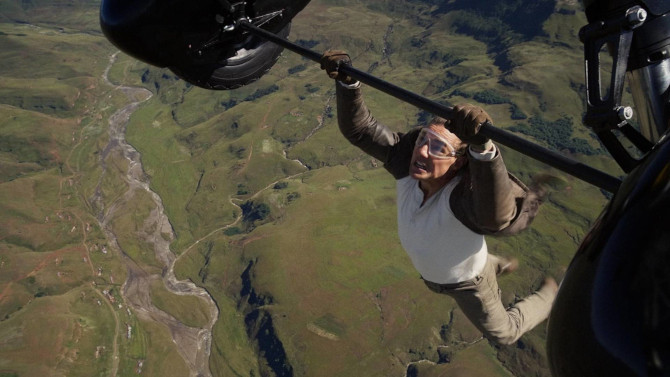
An Impossible Mission
How do you wrap up a franchise like Mission: Impossible? That is, if this even is the final installment... as they’ve made it sound (while at the same time, stars not named ‘Tom Cruise’ pipe up and suggest that might not be so). It has been twenty-nine years, with different writers and visionary directors – from twisty Brian De Palma and the action hair stylings of John Woo, to the lens flares of J.J. Abrams and animation expert Brad Bird, it was only about ten years ago that the franchise decided to opt for The Usual Suspects scribe Christopher McQuarrie for the final four. To return to that opening question once more, you could end with a Sopranos’ style cliffhanger, simply make another entertaining movie like the many before – like Everybody Loves Raymond did it with its final episode, or try to tie everything up in a neat little bow by bringing everything together as the Daniel Craig era did with James Bond. Well, it is definitely more along the lines of the latter example, with some distinct differences.
-
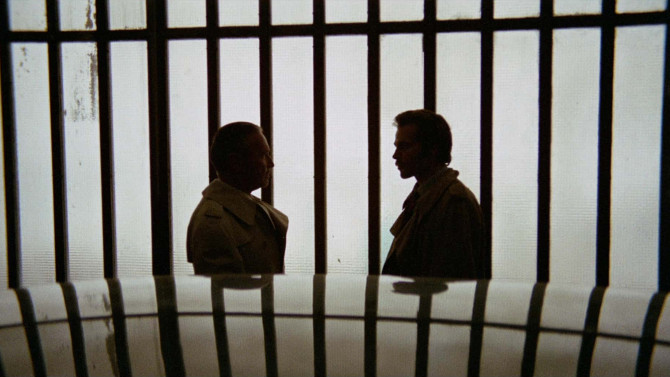
Auld Lang Five
The Fifth CordMay 21, 2019New Year’s Eve, a time meant for love and remembering old friendships, is ironically the start point of the 1971 giallo The Fifth Cord (directed by Luigi Bazzoni – The Possessed). Introduced by a disguised voice-over of a murderer planning his next victim, the psychedelic night club, which will introduce a number of main players in the sordid tale, is distortedly shown through a fisheye lens (using a long tracking shot, no less), Ennio Morricone music blaring, alcohol flowing as people strut, snarl, sulk, and stalk. Not long after people have departed the party, one of the goers, an English language teacher from Australia teaching in Rome, John Lubbock (Maurizio Bonuglia), is brutally attacked in a tunnel on his way home. . . and it seems as though the assailant had murder on his or her mind – while the only clue left behind is a black glove with its thumb removed (according to the police, this suggests that four other victims are likely to be in the would-be killer’s sight).
-
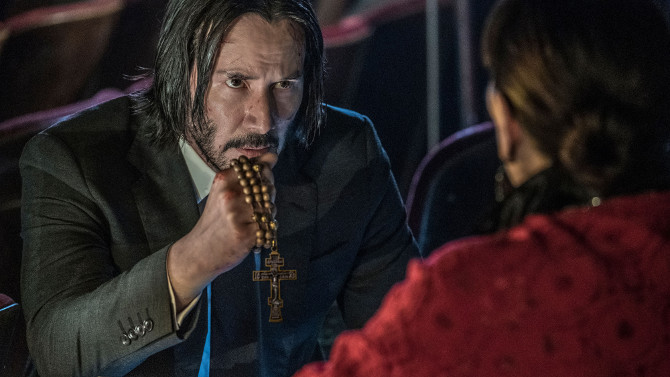
There’s No Rest For the ‘Wick’ed
John Wick: Chapter 3 - ParabellumMay 17, 2019Some roles just fit an actor like a finely made bespoke suit – and, in this case, said suit has a special bulletproof lining. . . you guessed it, I’m talking about Keanu Reeves as John Wick. Everything, from his direct delivery, longish hairstyle, and action persona, fit the character, and in the third feature in the franchise, 2019's John Wick: Chapter 3 - Parabellum, director Chad Stahelski (who has helmed all three efforts) builds on the previous two, creating an over the top, stylistic extravaganza that will make action fans giddy! If you saw Chapter 2, the film opened with silent film star Buster Keaton projected on a New York City building, symbolic in that this character is in many ways like The Great Stoneface’s iconic persona. . . as I put it in my previous review, Wick “bumps, crashes and bangs his way through foes, a wandering ‘tramp’ with no true home, albeit, wealthier, better dressed and much more connected”, well, as this picture opens, we once again see Keaton on a New York City building, only this time it is a sequence from his 1922 short Cops (a narrative in which the man is constantly being chased by the police, evading them time and time again in clever ways) – implying that this time, Wick will not be on the offensive, but rather, the defensive, endlessly tracked down after being marked as ‘excommunicado’ by the all powerful High Table for breaking their rules at the end of the last film.
-
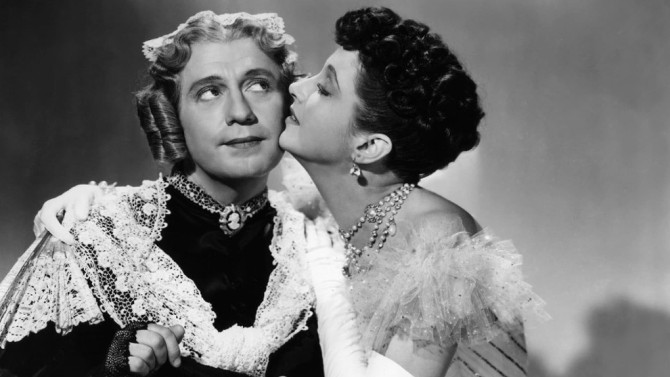
The Bachelorette
Charley's AuntMay 15, 2019Before Kinky Boots, Mrs. Doubtfire, and Tootsie, even before Some Like It Hot, there was the original cross-dressing comedy, 1941's Charley’s Aunt (directed by Archie Mayo). Based upon the famed stage play by Brandon Thomas, this was actually the third filmed version of the farce – and they say Hollywood is remake happy today! No better place to set such a premise than at the stuffiest of Universities, Oxford, the madcap premise is only further exaggerated by its time – 1890's Victorian England.
-
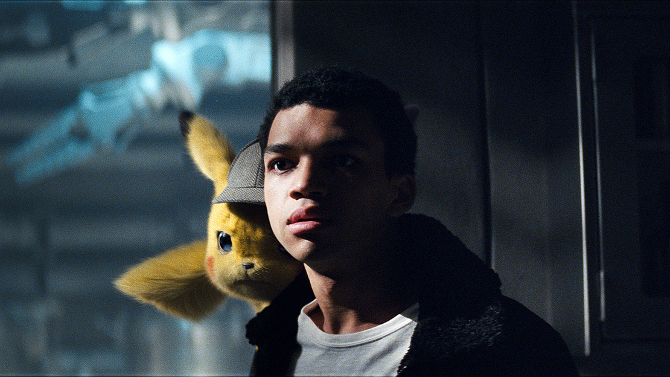
CSI: Pokémon Style
Pokémon Detective PikachuMay 13, 2019Every once in a while, you’ve got to relive your childhood. . . that came for me this past Saturday, when two of my friends contacted me and asked if I wanted to go see the new Pokémon movie. Always game for anything film related, my knowledge of the Pokémon franchise has not evolved (Pokémon pun intended) since the early 2000s – a time when every child, along with myself, was obsessed with the Gameboy games (colour coded Red, Blue, and later, Yellow) and the television series. Now, some twenty years later, Pokémon Detective Pikachu (2019) becomes the first live action film in this historic gaming/anime franchise. Directed by Rob Letterman, perhaps their wisest choice was casting Ryan Reynolds as the voice of one of the film’s leads, Pikachu – making this a PG-like version of Deadpool. Yet, I will warn you that this one is more for fans of the franchise than the average moviegoer (judging from its 170 million dollar opening weekend, there are clearly a lot of fans) – and, as attendees entered the theatre, they received a complimentary pack of Pokémon cards (a nice touch).
-
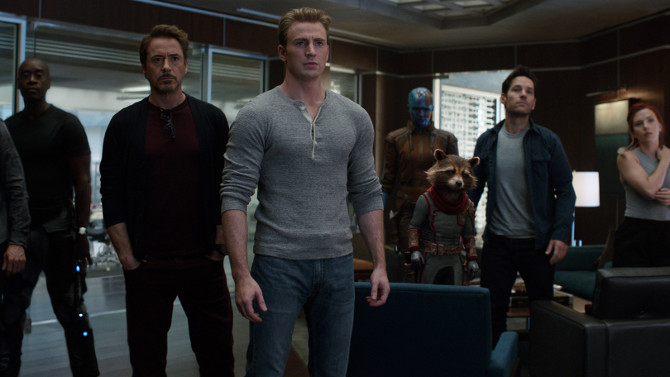
‘Marvel’ous
Avengers: EndgameMay 7, 2019Every once in a while, a film becomes part of the zeitgeist – capturing the spirit and mood of its time, uniting viewers in a shared experience that will never be forgotten. Think Gone With the Wind, Casablanca, The Godfather, Jaws, Star Wars, Titanic, the Lord of the Rings trilogy, Avatar. . . you get the idea. Capturing lightening in a bottle, this shared experience unites moviegoers worldwide, the most recent example, Avengers: Endgame (2019). Whether you love comic book films or hate them, it is hard to argue with what Marvel has done since 2008 (starting with Iron Man). A three phase initiative, with almost too many superheros to name, Endgame is the twenty-second feature in the last eleven years, and, in many ways, the end of this unique vision. Something never done before, standalone and ensemble films have been combined to great effect, grossing (to this point) over twenty billion dollars, and, for the most part, winning critics over along the way.
-
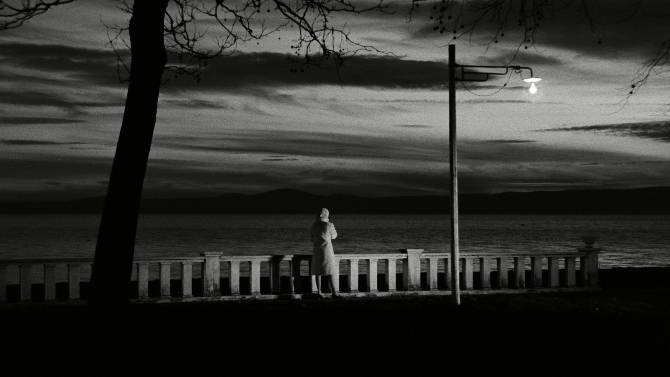
The Lady of the Lake
The PossessedApril 28, 2019An acclaimed author – disenchanted, empty, and broken. . . a man seemingly doomed to repeat his history, returns to a small Italian town that sits upon a lake (during its off season), looking for a maid he once loved – told she has committed suicide, an abstract mystery holds the man transfixed, living a story that could be his newest novel. In America, titled The Possessed (1965), around the world it is known as The Lady of the Lake, under either moniker, it is a fascinating Italian crossbreed directed by two very different individuals, journeyman Luigi Bazzoni (The Fifth Cord) and Franco Rossellini (his only directorial effort, he is the nephew of famed filmmaker Roberto Rossellini). . . a fascinating combination of lurid pop sensation and art film neo-realism.
